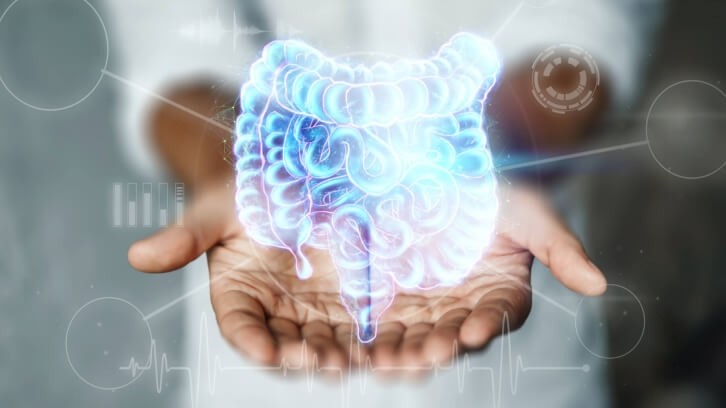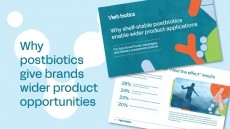Scientific Frontiers winner: Making the case for a microbiome-based personalized diet

Chosen from a record number of submissions, the company’s latest study compares a microbiome-based artificial intelligence-assisted personalized diet and a commonly administered diet in patients with irritable bowel syndrome (IBS).
“As you know, the low FODMAP diet is a symptoms-based approach, mainly engineered to treat the bloating and the pain that IBS patients suffer but doesn’t take into account the microbiome of the patient,” Dr. Varol Tunali, medical director at Enbiosis, said. “Our first outcome is to take the microbiome to a better state, and then symptom relief is the result of this microbiome improvement.”
Personalized diet vs. low FODMAP diet
For its investigation, Enbiosis evaluated various subjective physical and psychological indices in 41 IBS patients who followed either a personalized diet (PD) or a low FODMAP diet (LFD) for six weeks. Gut microbiome composition as determined by fecal analysis provided an objective measure.
“The personalized diet showed superiority over the low FODMAP diet in 7 out of 11 indices,” Dr. Tunali said. “Although the difference was not statistically significant, the performance of the personalized diet was consistently better compared to the low FODMAP diet.”
In addition, PD promoted alpha and beta diversity in the gut microbial composition, while the lack of substantial diversity shifts in the PD group suggested longer-term consequences of a restrictive diet beyond symptom relief.
“The most significant finding, in my perspective, is that the personalized diet showed improvement in the quality of life for all subgroups of IBS,” Dr. Tunali said. “In contrast, the low FODMAP diet only demonstrated such improvements for IBS-Constipation. This finding is particularly significant as it emphasizes personalization's crucial role in addressing diverse needs even within the same syndrome.”
The research builds on previous Enbiosis-led studies into the effects AI-assisted personalized microbiome modulation in patients with IBS or chronic constipation published in Gut Microbes and the Journal of Clinical Medicine.
Dietary intake recommendations
The identification of condition-specific microbiome effects is part of the wider Enbiosis mission to combine artificial intelligence and microbiome science to provide personalized diet and supplement recommendations. Founded in 2018 by Ömer Özkan, an industrial engineer who developed one of the first solar energy companies in Turkey, Enbiosis has already built up a databank of over 6,000 users, compiling data that continues to feed and refine its algorithm.
As with other precision nutrition companies, a proprietary genetic algorithm determines gut composition and relationships among bacteria from mail-in fecal samples to inform individualized microbiome analysis reports.
Based on this information, Enbiosis currently provides personalized diet plans to “feed or starve the bacteria” and has integrated technology that mines restaurant menus online to facilitate microbiome-aligned orders. Next up: Matching microbiome needs with prebiotic, probiotic, postbiotic and symbiotic products on the market or to Enbiosis’ own -biotic formulas.
“We are currently in negotiations with a prominent supplement supplier in the USA to establish a potential partnership for the North American market,” Dr. Tunali said. “If this agreement is finalized in the coming weeks, we will initiate our operations in North America, offering personalized diet and prebiotic/probiotic suggestion products in collaboration with our partner.”
Results from a study evaluating the prebiotic and probiotic suggestion engine are forthcoming, and the company’s new blood glucose regulatory algorithm is slated for clinical trial.
















